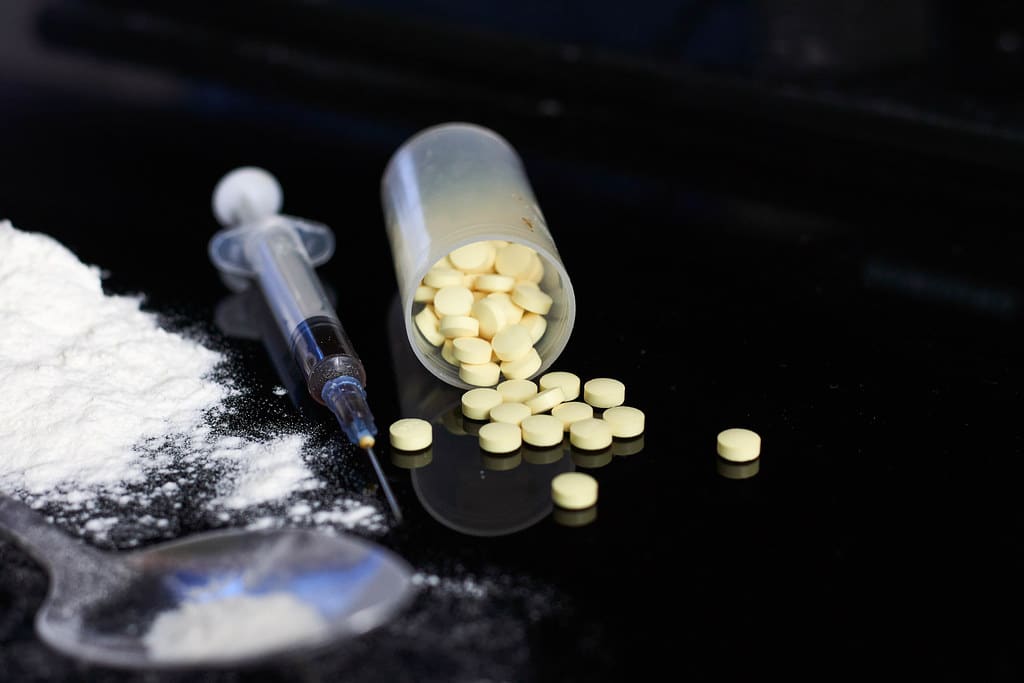Critics are calling Oregon’s Drug Addiction Treatment and Recovery Act a failure. According to Oregon’s ABC affiliate KATU: “Oregon still has among the highest addiction rates in the country. Fatal overdoses have increased almost 20% over the previous year, with over a thousand dead. Over half of addiction treatment programs in the state lack capacity to meet demand because they don’t have enough staffing and funding.”
The real disaster, however, is that Oregon instituted a drug decriminalization and treatment program instead of drug freedom.
In 2020, Oregon voters approved—by a vote of 58.46 to 41.54 percent—a ballot initiative (Measure 110) to decriminalize controlled substances and establish a drug addiction treatment and recovery program. A “yes” vote on the Drug Addiction Treatment and Recovery Act “supported making personal non-commercial possession of a controlled substance no more than a Class E violation (max fine of $100 fine) and establishing a drug addiction treatment and recovery program funded in part by the state’s marijuana tax revenue and state prison savings.”
The measure reclassified the personal noncommercial possession of a controlled substance in Schedule I-IV, such as heroin, cocaine, and methamphetamines, from a Class A misdemeanor to a Class E violation resulting in a $100 fine or a completed health assessment. The health assessments, which must be completed within 45 days of the violation, “are conducted through addiction recovery centers and include a substance use disorder screening by a certified alcohol and drug counselor.”
The manufacture or distribution of “illegal” drugs are still subject to a criminal penalty.
The measure also “established the Drug Treatment and Recovery Services Fund that would receive funds from the Oregon Marijuana Account and state savings from reductions in arrests, incarceration, and official supervision.” Every quarter, all revenue in excess of $11.25 million must be transferred to the fund for grants “to government or community-run organizations to create addiction recovery centers,” which “are required to provide immediate medical or other treatment 24 hours a day, health assessments, intervention plans, case management services, and peer support and outreach.”
GOP gubernatorial candidate Christine Drazan called Measure 110 a “terrible idea” that “made our addiction crisis worse, not better.” Betsey Johnson, another former lawmaker turned gubernatorial candidate, termed Measure 110 a “failed experiment.” Both candidates want voters to repeal it.
Steve Allen, behavioral health director of the Oregon Health Authority, said that “more than $302 million” had been “sent to facilities to help people get off drugs, or at least use them more safely.” But of the “16,000 people who accessed services in the first year of decriminalization, only 0.85% entered treatment.” Sixty percent received “harm reduction” like syringe exchanges or overdose medications. And according to Oregon Public Broadcasting, “most of the more than 3,100 tickets issued so far have been ignored, and few have dialed the hotline for a health assessment.”
It should first of all be said that drug decriminalization, even if it applies only to certain drugs, even if it applies only to possession, even if it applies only to a certain amount of drugs, even if still results in a small fine, and even if it comes with unwelcome government regulations and restrictions, is still much better than drug prohibition that can result in heavy fines, imprisonment, loss of employment, disintegration of families, financial ruin, and a permanent criminal record for those ensnared by laws against “illegal” drugs.
But decriminalization does not go far enough.
No one should be charged with a law violation for drug possession.
No one should be issued a ticket for drug possession.
No one should have to go to court for drug possession.
No one should receive a fine for drug possession.
No one should have to complete a health assessment for drug possession.
No one should be required to enter drug treatment for drug possession.
And that’s not all.
Government should not fund drug treatment centers.
Government should not fund or operate syringe exchange programs.
Government should not educate people about the dangers of drugs.
Government should not provide overdose medications.
Government should not help people to get off drugs.
Government should not keep people from harming themselves.
This last point is at the root of the problem with Oregon’s Drug Addiction Treatment and Recovery Act. Once it is accepted that it is a legitimate function of government to keep people from harming themselves, then there is nothing that the government cannot regulate. Although he was a drug warrior, President Reagan nevertheless said it best: “Government exists to protect us from each other. Where government has gone beyond its limits is in deciding to protect us from ourselves.”
What Oregon, and every state, needs is drug freedom. Drug freedom is the complete absence of laws and regulations concerning the manufacture, distribution, buying, selling, and possession of drugs of any kind. As much as drug warriors may not want to hear it, all men have the natural right to use or abuse drugs—even if it kills them.
Providing education about the moral, spiritual, and physical dangers of drugs, funding drug treatment centers, and helping people to get off drugs is the job of private entities, not the government.
This article was originally featured at the Future of Freedom Foundation and is republished with permission.
































